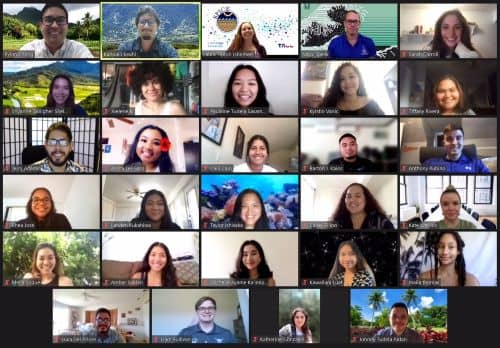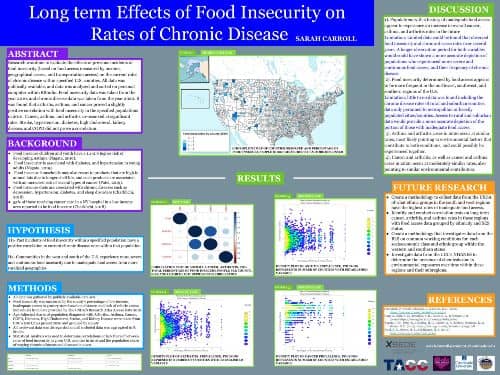For a third year, budding data scientists from across Hawaii and the mainland came together for Chaminade’s Supporting Pacific Indigenous Computing Excellence (SPICE) Data Science Summer Institute.

The 2021 program, held virtually, included 21 participants and four student mentors. In addition to Chaminade, students hailed from Stanford University, Borough of Manhattan Community College, the University of Hawaii Maui College, College of the Marshall Islands and Northern Marianas College. They also came from a diversity of academic backgrounds, from Nursing to Environmental Studies to English.
The month-long seminar is focused on helping students use data as they seek to make a positive difference in their communities and includes immersive experiences, collaboration and a final project. Institute organizers say students walk away not only with new skills, but with a new appreciation of how data science can be used across disciplines to help spotlight problems and highlight potential solutions.
SPICE is held in partnership with the Texas Advanced Computing Center. Program leader Dr. Kelly Gaither is associate director at the center. Other faculty who helped make the institute possible include Chaminade Assistant Professor Dr. Rylan Chong, director of the University’s Data Science program, and Chaminade Vice President of Innovation Dr. Helen Turner, who is also a professor of Biology.
Students took up all sorts of questions and issues in their final projects for the SPICE institute, from socioeconomic factors linked to heart disease in Hawaii to the potentially positive relationship between video games and social anxiety to the impacts of wildfires in California on chronic diseases.

The overall project and poster winner was Chaminade student Sarah Carroll, who looked into whether the long-term impacts of food security in the United States include higher rates of chronic disease. Using publicly available data sets, she mapped out food insecurity in the US and found a slightly positive correlation between food insecure individuals and rates of arthritis, asthma and cancer.
She noted further study is needed to determine what’s driving chronic diseases in food insecure populations, along with which US ethnic groups have the highest rates of inadequate food access.
There were also three track winners named.
In the healthcare track, Chaminade student Caili Cain took the top prize. She sought to investigate implicit bias in the medical field, including how medical school pedagogy might be endorsing false beliefs about biological differences between Black and white patients. Specifically, she was interested in how official and informal medical school curricula contribute to bias about how patients manage pain.
Chaminade student Rhea Jose was the track winner for Environment, with a presentation that explored whether food availability and consumption in the US can show food loss or waste. She said the next step in her research might include investigating food waste per capita in order to make local level changes. And Chaminade’s Amber Sablan was recognized for her social justice-focused presentation. In her project, she sought to determine whether gentrification on Oahu could be contributing to homelessness by driving up home prices and bringing in new higher-income tenants. She said the lack of available data from 2020 limited her research, but she is interested in furthering her study into the issue. More specifically, Sablan wants to look at the number of unoccupied homes on Oahu along with outmigration rates.



